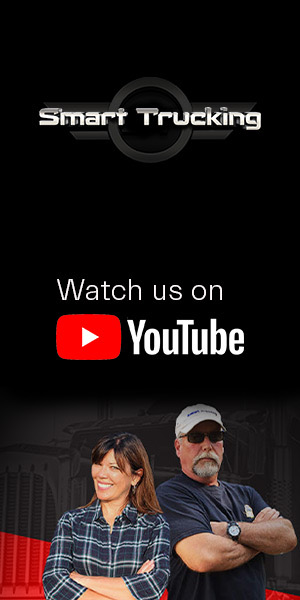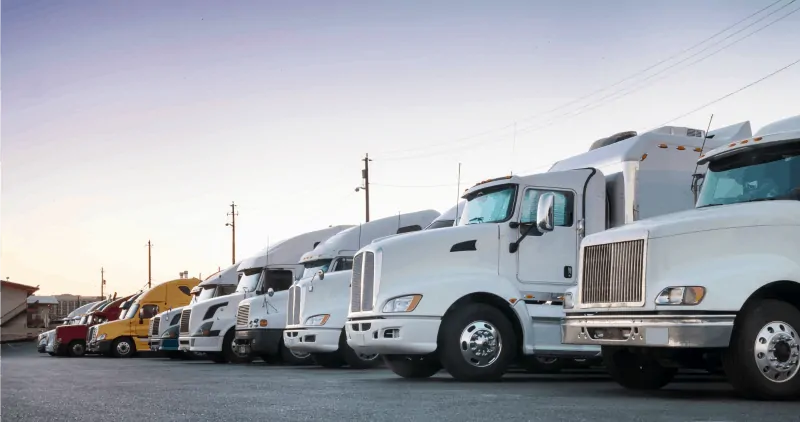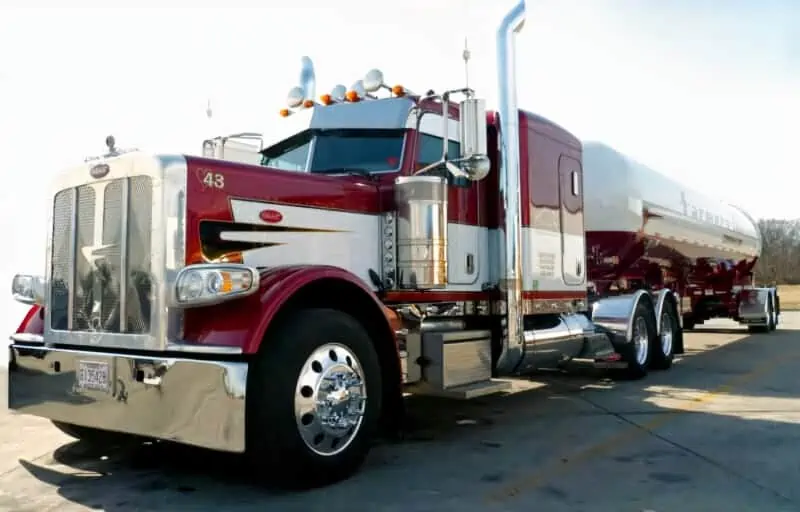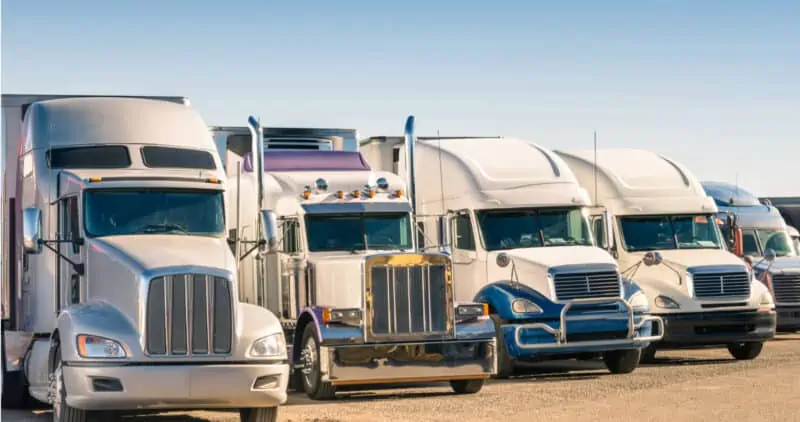With so much volatility in the trucking industry in North America, many drivers are asking themselves,
“Is It Really Worth To Be a Truck Driver in 2024?”
My professional opinion as a veteran truck driver for 48 years is, “Yes, it’s still worth it to be a truck driver, if you make good choices in your truck driving career”.
But, remember, not every job in trucking is a great job.

The Perks of a Truck Driving Job in 2024
- Freedom of the Open Road: You’ll savor the independence and variety each day brings, never being stuck in an office.
- Stable Income: The trucking industry offers reliable paychecks, vital in uncertain economic times.
- Travel Opportunities: You get to see different parts of the country, often places you might never visit otherwise.
- Demand for Drivers: A consistent need for drivers means job security for you in a crucial industry. Select niches in trucking are still very busy, in spite of the freight issues the industry is seeing.
- Comprehensive Benefits: Many trucking companies provide solid benefits packages, including health insurance and retirement plans.
- Skill Development: You’ll enhance skills like time management, navigation, and mechanical knowledge on the job.
- Community Pride: You’ll play an essential role in keeping the economy moving and communities supplied.
- Path to Advancement: Trucking can pave a road to career growth, from company driver positions to potential management roles or dispatching, maintenance, or safety department jobs.
The Risks of Becoming a Truck Driver in 2024
- Market Uncertainty: You might face instability due to fluctuating freight rates and demands, influenced by global economic conditions.
- Regulatory Changes: Ongoing legislative changes could affect your job potential and operational costs, making it harder to predict earnings. This would apply more to owner-operators and lease operators, not company drivers.
- Freight Shortage Impacts: A shortage in freight availability could lead to fewer driving opportunities and reduced income for you. Some niches tend to have fewer jobs available at this time.
- Increasing Operational Costs: Rising fuel prices and maintenance expenses could diminish your take-home pay, for those who own their own truck.
- Health Risks: Long hours and a sedentary lifestyle can have implications on your physical well-being, an aspect often overlooked by new drivers. This is where it becomes important to pay close attention to the niche you choose to work in. Eg, long haul trucking can be a strain on physical and mental health.
- Work-Life Balance: Over-the-road (OTR) trucking requires extended periods away from home, which can be tough on personal relationships and mental health.

Is It Better To Be a Company Driver, Lease Operator or Owner Operator in 2024?
I am of the mindset that the way to go in the current economy in trucking is being a company driver.
Here’s why.
Lower Financial Risk
You might be tempted by the status that comes with lease operator or owner-operator positions.
But remember, with great power comes great responsibility, especially financial ones.
As a company driver, you don’t shoulder the risk of loans for purchasing trucks or the stress of variable maintenance costs that can skyrocket without warning.
Your employer takes care of these, providing a safety net that’s particularly valuable in today’s uncertain freight market.
Steady Income
Freight shortages in 2024 mean that finding consistent work can be challenging as an independent operator.
However, company drivers receive regular paychecks, regardless of the peaks and valleys of freight availability.
This stability lets you plan your finances and personal life without the unpredictability that owner-operators may face.
Focus on Driving, Not Business
Running a business is no small feat.
As a company driver, your primary focus is on the road ahead — not the intricacies of business operations, client sourcing, or regulatory compliance.
This allows you to hone your driving skills and gain valuable experience without the added pressure of managing a business.

Where Should I Get My CDL Training?
Embarking on a truck driving career hinges on the solid foundation you build during your initial training.
- Choosing the right CDL school or truck driver training program is paramount.
- You need a program that not only teaches you how to handle a big truck but also prepares you thoroughly for the reality of life on the road.
- Look for schools with a track record of success, where experienced instructors provide comprehensive hands-on experience and where the curriculum closely aligns with real-world demands.
The investment you make in a credible training program will pay dividends by equipping you with the skills and confidence needed to navigate a truck driving career successfully.
How to Find a Good Truck Driving Job in 2024
Scrutinize Pay Packages
When applying to a carrier, examine the details of the package, including mileage rate, pick-up and drop rates, hourly delay pay, and any bonuses for mileage, long hauls, or special loads.
A transparent and lucrative payment arrangement often signals a better driving position.
If the pay package is hard to understand, that may be a sign to move on and check out some other companies.
Research Company History
Take a look into the background of potential employers.
Companies with a longstanding reputation for treating drivers well usually offer more stable and satisfying careers. There are slimy carriers in this industry.
Analyze Benefits
Look for additional perks like health insurance, retirement plans, and paid time off.
These benefits are markers of a company’s investment in its drivers’ well-being. It means they want you for the long term, and that’s a big plus.
Assess Job Security
It’s worth taking a look at the company’s stability.
If they have a strong history of profits, it may reduce the risk of job loss, when there’s a freight shortage or an economic slump.
Consider Equipment Quality
Check out the equipment sitting in their yard.
See if the company maintains a modern, well-serviced fleet. High-quality equipment can make your job safer and more efficient, leading to a better work experience for you in so many different ways.
Check Home Time Policies
Confirm the frequency and reliability of home time the company offers.
If they seem vague over home time policies, beware. You may be on the road for long periods of time, when that’s not what you want.
Regular, predictable home time is indicative of a driver-focused company culture.
Read Driver Reviews
Look for feedback from current and former drivers about their experiences. Authentic reviews can provide insight into daily operations and company ethics.
Value Training Opportunities
Some companies provide ongoing learning for drivers. Definitely prioritize companies that provide continuous learning and skills.
An ongoing training program shows the company is committed to its drivers and shows commitment to their safety.
Ongoing training shows commitment to driver advancement and safety.
Will I Still Have a Job as a Truck Driver in the Near Future, Given the State of Trucking in 2024?
You might be wondering if you’ll still be gripping that steering wheel down the road, given all the talk about driverless trucks and the ever-changing economy.
Let me put your mind at ease.
The road for truck drivers in 2024 still stretches far and wide. Technological leaps are making headlines, but trust me, we’re decades, away from autonomous trucks dominating the highways.
The human element—you—remains irreplaceable in the cab.
Navigating complex traffic, managing unforeseen road conditions, and ensuring the safety of the cargo can’t be left to robots.
The economy might be unpredictable, with its ups and downs impacting the trucking industry.
But remember, no matter what the economic climate, goods need to move, and you are the key to that movement.
Every package delivered and every shelf stocked depends on your skills behind the wheel.
As industries grow and consumer demand climbs, so too will the need for reliable truckers.
So gear up, because your expertise won’t just vanish with the next software update or economic report.
You’ve got many miles ahead of you.

Will the Freight Shortage End Soon?
The freight industry is navigating turbulent waters as of 2024.
- Demand and supply chains are jittery, caught between a recovering global economy and geopolitical pressures.
- You’ll find that inconsistent manufacturing outputs and consumer demands are partly to blame for the freight shortage.
- Trade tensions, port congestions, and COVID-19’s lingering impact further muddle the picture.
- It’s a complex puzzle – ports are backlogged one minute, warehouses, overflow the next. Then, there’s the shift in consumer behavior that’s hard to predict.
Flatbed trucking companies and tanker trucking companies still seem to be holding their own in the more specialized niche within the industry.
Looking forward, predicting an end to the freight shortage is challenging.
The analysts suggest the scales might start to balance as global economies stabilize and adapt to the ‘new normal’.
Investment in logistics infrastructure is also ramping up, aiming to ease bottlenecks.
All eyes are on the next couple of years for potential relief.
In the meantime, truck drivers should stay adaptable, responsive to market shifts, and connected to industry news for the latest trend forecasts.










